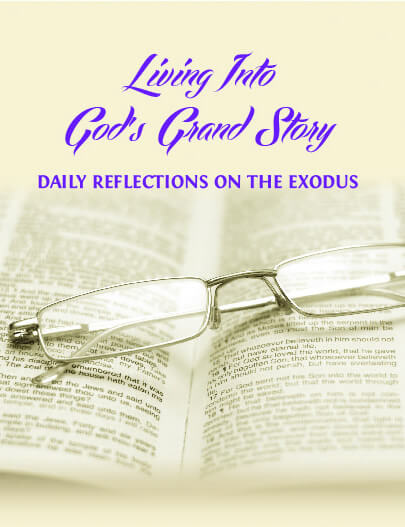
Exodus 17:1-7
“I thirst” is the only expression of bodily pain from Jesus on the cross. Thirst burns and rages feverishly, consuming the whole person. That is why people who fast still drink water because they couldn’t take it very long if they thirsted. It is one thing to be hungry, but thirst is different. Body and soul cry out for water.
We can feel for the Children of Israel as they come yet again to a place in the desert wilderness where there is no water for them, their children, or their animals. Nerves throb as thirst drains their bodies of fluid. Excruciating death is certain within hours if they do not quickly get something to drink. They quarrel with Moses and with the Lord, crying out: “Give us something to drink”.
While still in Egypt God had promised the Israelites that He would bring them safely to the Promised Land (Exodus 3:8, 17; 13:5, 11). He never said He would take them out into the desert and abandon them. They had already seen God’s miraculous deliverance at the Red Sea, as well as provision of water (Exodus 15:25), daily raining down of manna from heaven, and quail for every evening meal (Exodus 16).
Still they doubt God’s heart and His promise to provide in yet another waterless place in the Wilderness. They expect God to act in the way they want rather than waiting on Him to provide as He promised.
So perhaps for us today, just like the Israelites “God has led us into a place that involves a complete reversal of our prepackaged values, a complete undoing of our carefully laid plans, and a lot of letting go of our preconceived ideas” (Thomas Keating, Intimacy with God). If we were not honest about our own hearts we might be shocked at the Israelites’ hardness of heart to God’s goodness.
Moses named this second place where God provided water, “Massah and Meribah because the Israelites quarrelled and tested the Lord, saying, ‘Is the LORD among us nor not?’” “Massah” is the Hebrew word for “test” as the Israelites tested God in their unbelief. “Meribah” is the Hebrew word for their “quarrel” with God, finding fault with His ways.
Hundreds of years later a prayerful psalmist reflects on what happened at Massah and Meribah and speaks God’s Word to all generations:
In distress you called, and I rescued you;
I answered you in the secret place of thunder;
I tested you at the waters of Meribah.
Hear, O my people, while I admonish you;
O Israel, if you would listen to me..
Open your mouth wide and I will fill it.
(Psalm 81:7-9, 11)
If today you are like Israel and find yourself in yet another place of trouble, “open your mouth wide” with praise and prayer: God will fill it with good!
REFLECTION
- Have you come to a place of “testing” in your journey through the Wilderness? If so, explain.
- Are you being tempted to “quarrel” with God about this?
- How can you turn quarreling with God into praise?


